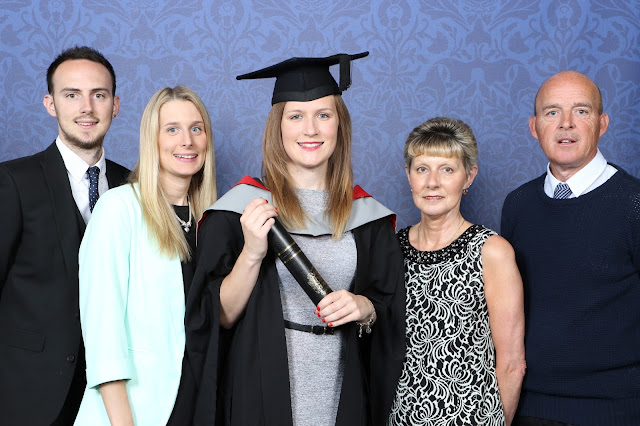 A Bolton mother who was inspired to change career path after seeing the care her disabled son received has graduated with a physiotherapy degree from UCLan.
A Bolton mother who was inspired to change career path after seeing the care her disabled son received has graduated with a physiotherapy degree from UCLan.Ellen Welsby's seven-year-old son Thomas suffers from cerebral palsy and requires regular care and support from medical professionals.
It was this first-hand experience which made her swap from a life as a dental nurse to a physiotherapist. The former Bolton Community College student said: "It was my son's care that first sparked my interest in physiotherapy.
"Seeing the positive effects his treatment had on his quality of life inspired me to want to do the same for others.
"I've always enjoyed working with people as I previously worked as a dental nurse in a local practice, but as soon as my son was old enough to begin full-time education I decided it was time to enrol on the college access course which would enable me to apply to do a physiotherapy degree.
"I feel over the moon to be graduating and I'm very proud of myself. Caring for Thomas means it's been somewhat difficult at times to keep up with my studies, but I couldn't have done it without the support of my family and my tutors. They've been really understanding.
"The thing I've enjoyed the most is the opportunity to learn in a practical way, spending time with real patients and staff in a variety of clinical settings has really prepared me to do my job well."
Ellen will now start a new chapter in her working life after securing a physiotherapist position at East Lancashire Health Trust.





